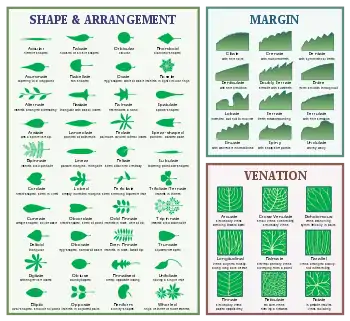Dendrology
Dendrology (Ancient Greek: δένδρον, dendron, "tree"; and Ancient Greek: -λογία, -logia, science of or study of) or xylology (Ancient Greek: ξύλον, ksulon, "wood") is the science and study of wooded plants (trees, shrubs, and lianas), specifically, their taxonomic classifications. There is no sharp boundary between plant taxonomy and dendrology; woody plants not only belong to many different plant families, but these families may be made up of both woody and non-woody members. Some families include only a few woody species. Dendrology, as a discipline of industrial forestry, tends to focus on identification of economically useful woody plants and their taxonomic interrelationships. As an academic course of study, dendrology will include all woody plants, native and non-native, that occur in a region. A related discipline is the study of sylvics, which focuses on the autecology of genera and species.

Relationship with botany
Dendrology is often confused with botany. However, botany is the study of all types of general plants, while dendrology studies only wooded plants.[1] Dendrology may be considered a subcategory of botany that specializes in the characterization and identification of woody plants.
Noted dendrologists
- Mike Baillie, Queen's University of Belfast
- Francis A. Bartlett, founder of Bartlett Arboretum and Gardens and the Bartlett Tree Research Laboratory
- Ludwig Beissner
- William Douglas Cook, founder of Eastwoodhill Arboretum and Pukeiti (New Zealand)
- Michael Dirr
- Maciej Giertych
- Owen Johnson
- Humphry Marshall
- Alan Mitchell
- Alfred Rehder
- Viscount Philippe de Spoelberch
References
- "Dendrology". Tree Identification. Retrieved June 3, 2019.
External links
| Look up dendrology or xylology in Wiktionary, the free dictionary. |
- Iowa State - Dendrology
- Forest Biology and Dendrology Educational Sites at Virginia Tech
- Dendrology information and other tree identification resources

